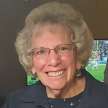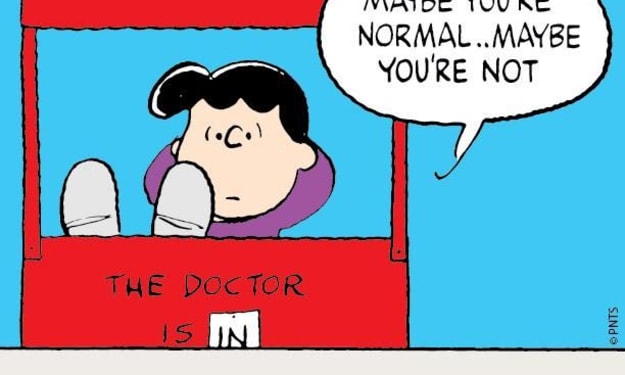Pre-Surgery Education Class - The Fattest One in the Room
Part 5 of My Weightloss Journey Through Bariatric Surgery

One of the requirements for being approved for bariatric surgery is that candidates attend a series of Pre-Surgery Education Classes, in which we examine our reasons for undergoing the surgery; learn the anatomical aspects of the surgery; learn the physical ramifications of the surgery, and learn how we are going to have to eat for the rest of our lives. I do not know how anyone could go through the surgery and be successful afterward without attending all these classes. They are invaluable.
As I mentioned in the Introduction, my perspective on my actual size was apparently way off. I knew I was heavy. I knew that I was stared at in airports and restaurants and needed a seat belt extender for the airline seat, but somehow, I just never realized how huge I was. Until I attended Pre-surgery Bariatric Classes.
I thought that a bariatric patient was the size of those morbidly obese people you see on My 600 lb. Life TV show. I did not expect my fellow students to weigh 600 lbs, but I expected them to look far heavier than me. I expected to see 300+ pounders. (Never mind that I was so far up the ladder of weight that I could see that number up ahead.) I did not see myself as that heavy.
So I was confused when I entered my first class and saw a group of people who looked “normal fat” to me, which means that they looked less fat ( The adjective “thinner” would not be appropriate here.) than I expected, or basically that I was fatter than everyone in the room. As if I was not depressed enough over my weight, this revelation was not helping the situation.
This class focused on why we wanted the surgery and what we expected to achieve from it, besides weight loss. There was a wide range of ages from 20’s to 70’s. Besides being the fattest in the room, I think I was also the oldest at 71. Most participants cited health reasons and wanting to be alive to enjoy their relationships, children, and grandchildren for wanting the surgery.
I said I was simply tired of fighting my weight for 65 of my 71 years and wanted to achieve some normalcy in my life related to food. But honestly, I was not that invested in the topic. I was too busy focusing on how everyone else looked.
Why is he here, I thought as I observed a little beer belly on the man sitting across from me. Geesh, she looks like she only has about 50 lbs. to lose, I thought as I observed the young woman (20ish) sitting next to me. Hmm, that woman sure looks heavy, but when she told the class her weight, to my dismay, I was heavier than her.
The bariatric nurse and nutritionist who were leading the lesson were talking, writing on the board, and asking and answering questions from eager, engaged participants, one of whom was not me.
Instead, I was selfishly, totally self-absorbing, and obsessing over how much less fat everyone was compared to me. I think it was during that class that I finally understood and accepted the “morbidly obese” designation that was written on every one of my medical reports; a label I had, up until that class, stubbornly refused to accept. If I had harbored any doubts about going through with the surgery, they were dispelled that night.
The succeeding classes taught us the mechanics of the surgery, what physical reactions to expect from it, how and what we would be able to eat each week post-surgery, and how we would be expected to eat for the rest of our lives.
The classes were detailed, informative, and in my opinion, essential. It bears repeating that I have no idea how anyone could undergo this surgery and endure its aftermath without being educated and prepared, which brings me back to the TV show, My 600 lb. Life.
Of the episodes I have seen, many of the participants fail miserably. Besides their multitude of emotional and psychological issues, I would think that one of the main reasons for their failure is the total lack of pre-surgery education.
Dr. Now hands them a 1200-calorie diet, tells them they must adhere to it religiously, and lose an enormous amount of weight (usually 75- 100 lbs.) by the time they return for their next appointment in two months. That is an almost impossible task to achieve with no education and no support from a nutritionist and psychologist at the very least.
Our assignment was to lose 5% of our weight by our surgery date. In my next installment of My Weightloss Journey, I will tell you exactly how difficult this part of the requirements was for me, even with all the support I received.
Next: If I Could Stay on a Starvation Diet, I Wouldn’t Need the Surgery
Part 1 - Introduction
Part 2 -The Road to Bariatric Surgery - Full of Potholes
Part 3 -Struggling Through the Pre-Surgery Medical Clearances
Part 4 - Failing the Psychological Exam
About the Creator
Joan Gershman
Retired - Speech/language therapist, Special Education Asst, English teacher
Websites: www.thealzheimerspouse.com; talktimewithjoan.com
Whimsical essays, short stories -funny, serious, and thought-provoking
Weightloss Series






Comments
There are no comments for this story
Be the first to respond and start the conversation.